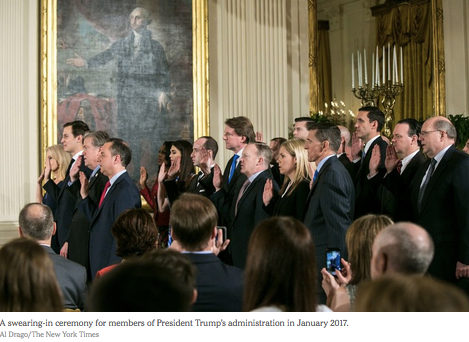As a real estate executive and reality TV star, Donald J. Trump tightly controlled his image by insisting that everyone around him sign nondisclosure agreements threatening steep monetary penalties if they revealed anything about him or his company.
A few months into his presidency, Mr. Trump — infuriated by leaks about everything from staff rivalries to his bathrobe-wearing, TV-viewing habits — ordered Reince Priebus, then his chief of staff, to do the same thing in the West Wing.
To calm Mr. Trump, Donald F. McGahn II, the White House counsel, drew up a broad document barring White House officials from publicly disclosing what they heard and saw at work. But he privately told senior aides that it was mainly meant to placate an agitated president, who was convinced that the people around him had to be pressured into keeping his secrets. Mr. McGahn made it clear the agreement could not ultimately be enforced, according to several people who signed.
The nondisclosure agreement, presented by Mr. Priebus to the senior staff last April, did not specify any penalties — financial or otherwise — for breaking it. But it was an early indication that Mr. Trump, who spent decades using pressure tactics and secrecy in his private life, wanted to do the same thing at the White House, breaking with tradition. He would push the obsession of many of his predecessors with damaging leaks to a new level.
And if the potential for punishment seemed remote to his top aides, the message from the president was clear: keep quiet.




